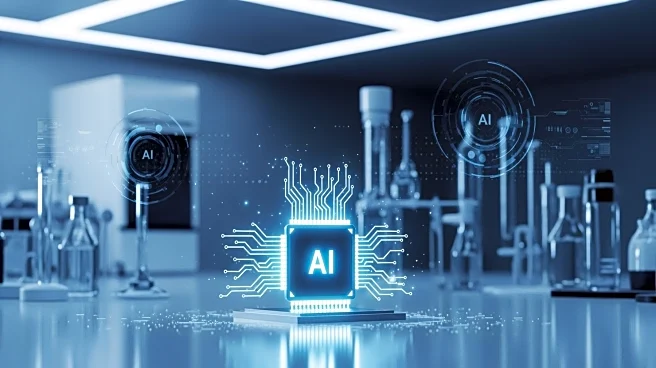What's Happening?
AI is increasingly becoming integral to the biopharma industry, transforming operations, research and development, and executive leadership. As AI technologies like generative AI evolve, they are reshaping the roles and responsibilities of C-suite leaders.
The global life sciences practice at Accenture highlights the need for leaders to adapt to these changes, emphasizing collaboration between humans and AI agents. AI is streamlining processes such as regulatory reviews and drug discovery, while also transforming clinical trials. The focus is on how AI can automate tasks like issue analysis and budget management, allowing leaders to concentrate on strategic activities that require human judgment and emotional intelligence.
Why It's Important?
The integration of AI in leadership roles is crucial for the biopharma industry to remain competitive and patient-centric. As AI automates routine tasks, leaders can focus on high-value activities, enhancing enterprise value. This shift requires leaders to be AI-literate, capable of interpreting AI-generated insights and integrating them into strategic planning. The ability to lead cross-functional teams and adapt to rapid changes is essential for future success. Organizations that embrace AI as a partner in leadership will foster innovation and resilience, positioning themselves to thrive in a fast-paced, digital world.
What's Next?
Biopharma leaders are encouraged to cultivate a mindset of continuous learning and experimentation, flattening hierarchies and aligning incentives with adaptability. As AI continues to evolve, leaders must remain open to new possibilities and be willing to reinvent their strategies in real-time. The focus will be on building adaptive structures and decentralizing decision-making to anticipate disruptions and respond swiftly to market changes.
Beyond the Headlines
The adoption of AI in leadership roles presents ethical considerations, such as ensuring human oversight in decision-making processes. Leaders must balance the benefits of AI automation with the need for human judgment in strategic decisions. The cultural shift towards AI-driven leadership requires organizations to foster environments that encourage curiosity and innovation, while addressing potential biases in AI systems.

















